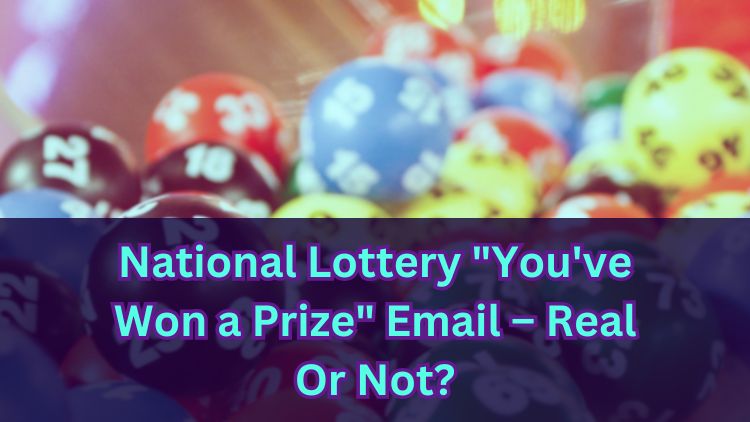
Receiving an email claiming that you've won a National Lottery prize can be surprising—and sometimes confusing. While some of these messages may be genuine, many are not.
With scammers increasingly able to imitate official emails, it's understandable to question whether such messages are real or fake.
Recognising the signs of a legitimate National Lottery email can make it easier to stay safe and avoid common pitfalls. This guide covers what to look out for and how to protect yourself. Read on to learn more.
Does The National Lottery Email Winners?
The National Lottery does contact some winners by email, but this is usually only if you play online using a National Lottery account.
If you have an account and have purchased tickets digitally, you might get an email saying you have “good news” waiting in your account. These emails don’t include the prize amount and won’t ask for sensitive information.
If you bought your ticket from a shop, the process is different. You will need to check your ticket in person, as the National Lottery will not email you about shop-bought wins.
Always inspect the sender’s address to ensure it’s genuine, and don’t click on links if you’re unsure. The National Lottery will never charge a fee to claim your prize.
Spotting A Genuine National Lottery Email
A real National Lottery email will come from an address ending with “@national-lottery.co.uk”. If you see a different ending, be careful.
If you’ve won a prize, you won’t be asked for bank details, passwords, or payments to claim it. Authentic emails will simply ask you to log in to your National Lottery account for more information.
Real National Lottery messages are straightforward, with clear branding and no spelling mistakes. They also leave out the prize amount for security.
When in doubt, checking these features can help you verify whether a message is real. Only respond to official communication and never share personal details in reply to an email.
What To Do If You Receive A Lottery Win Notification
If you’ve received a “win” email, you should start by checking the sender’s address to make sure it matches the official one. Look out for mistakes or requests for private information, which the National Lottery would never ask for by email.
If the email makes you unsure, don’t use any links in the message. Instead, open a new browser window and sign in to your National Lottery account directly.
Suspicious messages should be reported to the National Lottery and then deleted from your inbox. This will help you protect your information and prevent future scams.
Example National Lottery Big Win Email
When the National Lottery contacts someone about a big win by email, they keep it simple. If you're registered and bought your ticket online, your email's subject line might say something like “News about your ticket” or “Good news from The National Lottery.”
You’ll be invited to log in to your account for more details, but the email won’t mention the amount won. You won’t be asked to send money, bank details, or passwords.
As mentioned earlier, official emails use proper branding and contain no spelling or grammar mistakes. There's usually a link to the official website, but you’re always safer typing the address yourself. Look out for the logo and the correct contact information as well.
Common Signs Of Scam Emails
Scam emails often have a few telltale signs that can help you spot them. One of the first things to check is the sender’s email address—it may look similar to the official one but often includes small differences or unusual formatting.
Spelling mistakes, awkward phrasing, and unexpected requests for personal information or payment are also red flags. Some scam messages try to create a sense of urgency, pressuring you to act quickly by clicking on links or opening unfamiliar attachments.
Poor branding can be another clue. If the logo looks blurry or the layout seems off, it may not be from a trusted source.
If you ever feel unsure, reach out to the official National Lottery using their direct contact details before taking any action. Recognising these signs can make it much easier to protect your information and avoid falling for a scam.
**The information provided in this blog is intended for educational purposes and should not be construed as betting advice or a guarantee of success. Always gamble responsibly.
